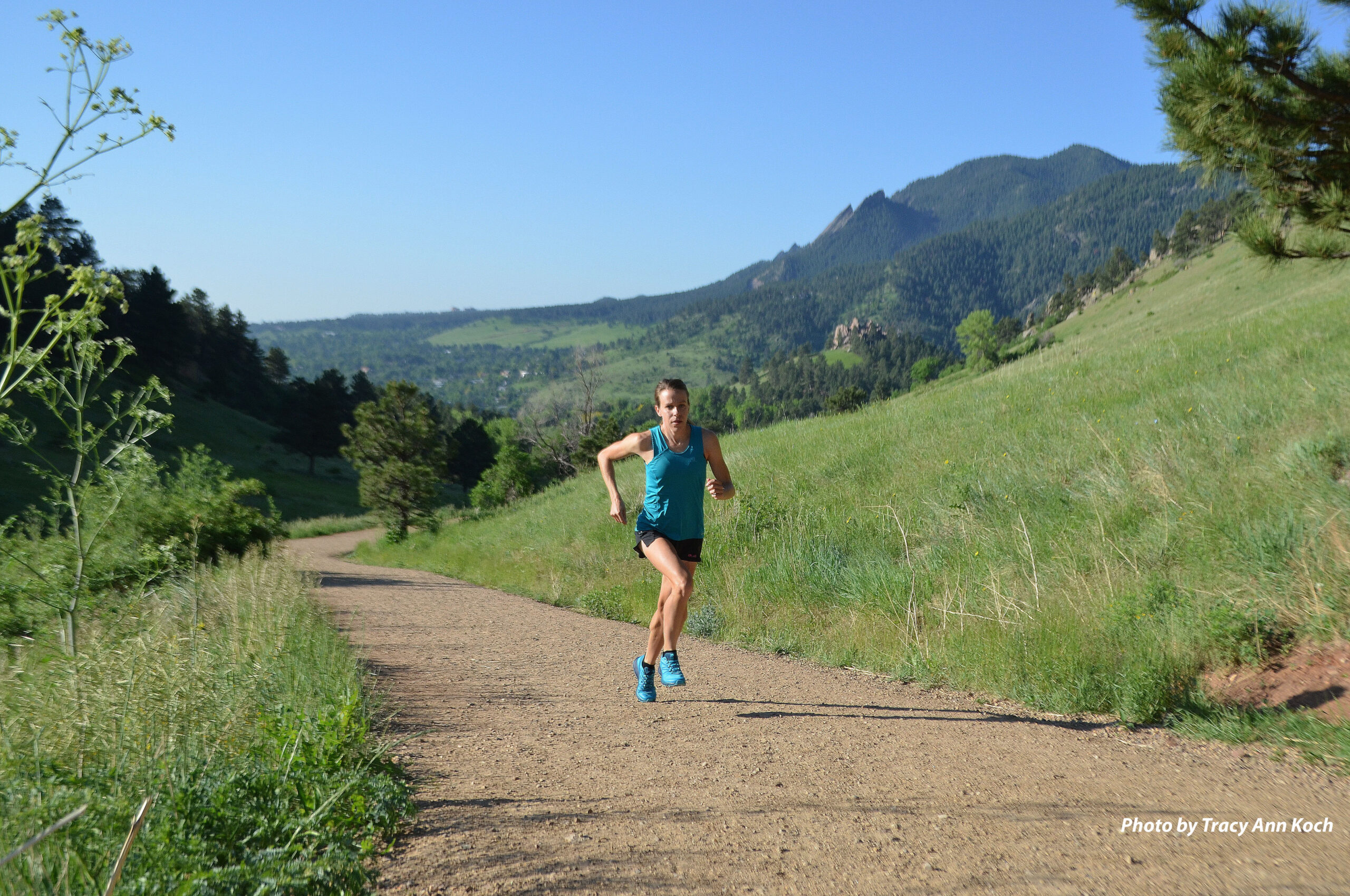Commit, Don’t Quit: Reflecting on 2013 and Setting Race Goals
By Emily Booth
Whether or not New Year’s resolutions are your thing, there will come a day when you set a 2014 race goal or two. Whether your goals involve nabbing that “big buckle,” running farther or faster than ever, or simply trying a new event, use these suggestions to set realistic, attainable goals.
p>2014 looms and with it comes resolution. We reflect on the passing year, its highs and lows and use that information to start fresh, resolving to make certain changes when the clock strikes midnight on January 1.
For ultrarunners — and aspiring ultrarunners — your 2013 highs may have included finishing your first 100-mile race, achieving a huge PR, or even a win. Recalling your lows might conjure memories of injury, disappointing results, or even the “ultra” reality of a DNF. Often it is the impact of these highs and lows that shapes the training and racing goals we set for the New Year. And the time is upon us to not only consider our goals, but to commit to them and make a plan to achieve them.
So, What Do You Want to Do in 2014?
Obviously, the first step is deciding what it is we really want to do. Fortunately, there are a multitude of beautiful and iconic events, such as those in the Leadville Race Series, each with its own charms and challenges. While emotion may be a starting point in determining your choice of event, your best chance for success also includes considering several other important factors.
So, this January, as you plan your big goals, consider the following:
Are you most interested in the experience? Or the result? Knowing that will greatly influence the event(s) you choose and the way you plan your preparation. If you are after a PR, it can be fun to test yourself on the same course, especially if you have “unfinished business.” Or maybe challenging yourself on a new course could be just the boost you need to kick-start improvements if you are feeling stale. And remember that racing results aren’t just about your place at the finish — You might choose to focus on a race that will help you sharpen different abilities like speed or climbing.
Are your goals realistic? Having the goal to finish the Leadville Trail 100 (or any 100 mile race) or to earn the coveted big buckle is one thing; actually putting together a plan based on your experience and the time you have to train is something else. If you’re a newer runner thinking about making the jump to competing in an ultra, you will also need to give your body sufficient time to adapt to the rigors of ultra distances through proper progression and plenty of patience. Seeking help (from a coach, for instance) and getting a plan in place will give you the confidence you need to make your goal attainable, whatever it may be.
Have you considered and realistically budgeted the time and resources to set yourself up to achieve your goal? Challenges will always present themselves, but planning for as many factors as possible ahead of time will help you cope better when the unexpected does happen. Ensuring that you have the support you need from work and/or loved ones to train will make the process much more enjoyable. Securing things like lodging, crew, and travel can be very stressful at the last minute and can impact your performance, so take care of as much of it as you can as soon as you know you are “in.”
Is it time to hire a coach, a trainer or a nutrition expert? Staying in the comfort zone is not a trait common to many ultrarunners, but sometimes we become victims of our own patterns and habits. When setting goals — especially if those goals include running a personal best or taking on a new course or distance — we have to be prepared to do things we haven’t done before.
Regardless of your experience level, enlisting the help of a coach or nutrition expert can be invaluable in that process, especially if your goals are really aggressive, you have been plagued by injury, or if you have chronic nutritional issues. The experience, expertise, support, and accountability of a pro may be just what you need. The New Year is also a great time to get metabolic testing done to optimize your training and measure improvements.
Are your goals more long range? Perhaps you want to run 100 miles in the future but you are unsure if 2014 is the year. Committing to participate in a shorter event such as the Leadville 10K, Heavy Half, Trail Marathon, or even pacing another runner in the 100, will give you a great taste of the Leadville experience with a more manageable training schedule.
Remember: “Unless commitment is made, there are only promises and hopes; but no plans” (Peter F. Drucker).
Whatever your goals may be, they won’t happen until you COMMIT. As a part of the Leadville Race Series family, you know the mantra: “I commit, I will not quit!” So, commit, make a plan, and hopefully we’ll see you on the red carpet on 6th Street this summer.


